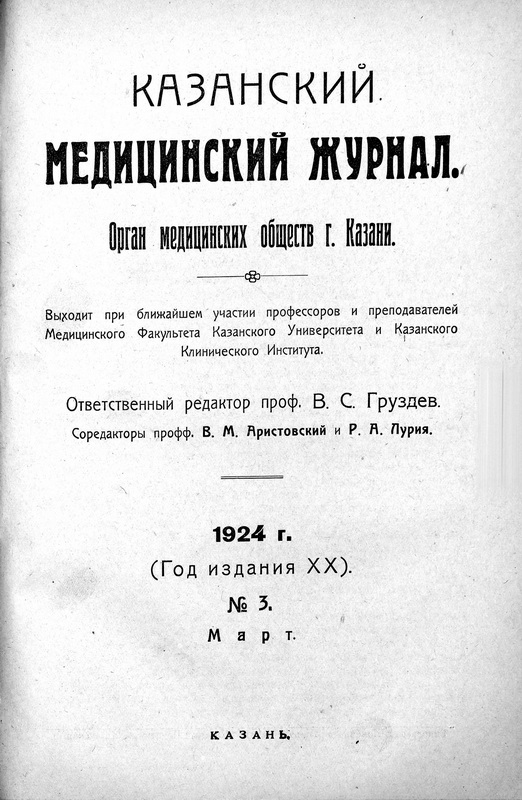К вопросу о функции почек при доброкачественном нефросклерозе О. Кlеіn’y (Deut. Arch. f. kl. Med., Bd. 138, S. 82)
- Авторы: Зимницкий С.
- Выпуск: Том 20, № 3 (1924)
- Страницы: 322-322
- Раздел: Статьи
- Статья получена: 24.07.2021
- Статья одобрена: 24.07.2021
- Статья опубликована: 11.08.2021
- URL: https://kazanmedjournal.ru/kazanmedj/article/view/76475
- DOI: https://doi.org/10.17816/kazmj76475
- ID: 76475
Цитировать
Полный текст
Аннотация
Хотя вопрос о нахождении остаточного азота в крови при этом заболевании и разрабатывался, однако О. Кlеіn’y (Deut. Arch. f. kl. Med., Bd. 138, S. 82) удалось тщательным клиническим изучением установить периодические повышения остаточного азота в крови, что надо поставить связь с периодическими нарушениями функции почек при этом страдании,—факт новый и по существу очень важный для клиники. Оказывается, это находится, по-видимому, в зависимости от временных недостаточных кровеснабжений почек. На это явление нужно смотреть, как на функциональное (от спазма приводящих и собственных сосудов почек) при доброкачественной гипертонии и постоянное при злокачествѳнной-г-в зависимости от анатомических и органических причин (артериосклероз).
Ключевые слова
Полный текст
Хотя вопрос о нахождении остаточного азота в крови при этом заболевании и разрабатывался, однако О. К1еіn’y (Deut. Arch. f. kl. Med., Bd. 138, S. 82) удалось тщательным клиническим изучением установить периодические повышения остаточного азота в крови, что надо поставить связь с периодическими нарушениями функции почек при этом страдании,—факт новый и по существу очень важный для клиники. Оказывается, это находится, по-видимому, в зависимости от временных недостаточных кровеснабжений почек. На это явление нужно смотреть, как на функциональное (от спазма приводящих и собственных сосудов почек) при доброкачественной гипертонии и постоянное при злокачествѳнной-г-в зависимости от анатомических и органических причин (артериосклероз).
Список литературы
Дополнительные файлы







